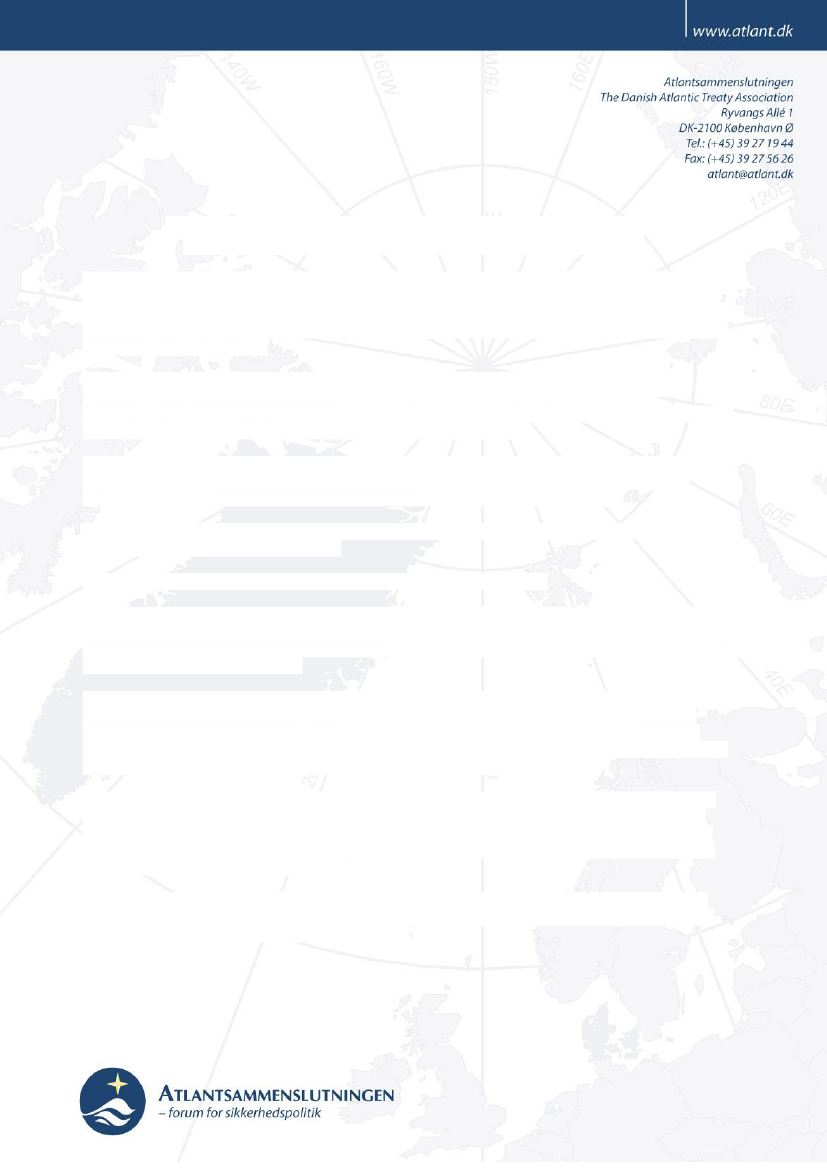
Europæisk energisikkerhed efter Ruslands invasion af Ukraine
-
debatmøde med David Koranyi i morgen kl. 14.30-16.00.
Europæisk energipolitik er i øjeblikket kraftigt påvirket af sikkerhedspolitiske dagsordener. Udviklingen
af EU’s energiunion er accelereret i takt med Ruslands invasion af Ukraine, og en række lande har
investeret i nationale alternativer til russisk gas. Det russiske statsbudget er påvirket af det globale fald
i oliepriser, og samtidig har EU Kommissionen åbnet en formel undersøgelse af russiske Gazprom’s
forretningsmetoder i Europa.
Situationen rejser en række spørgsmål i forhold europæisk energisikkerhed: Er der realistiske
alternativer til russisk gas i Europa? Vil Gazprom rette ind og underlægge sig europæiske
konkurrenceregler? Er Ruslands langsigtede målsætning at skifte fra det europæiske til det kinesiske
marked, hvor der vil være væsentligt større efterspørgsel i fremtiden?
Tirsdag d. 5. maj vil Atlantsammenslutningen sætte fokus på disse spørgsmål sammen med en
ledende international ekspert på området, David Koranyi, som er direktør for den amerikanske
tænketank Atlantic Council’s ”Eurasian Energy Futures Initiative” i Washington, DC.
Mødet finder sted tirsdag d. 5. maj fra kl. 14.30 -16.00 på Svanemøllens Kaserne, Ryvangs Alle 1,
bygning 38 Mødet vil foregå på engelsk.
Vi beder om tilmelding på [email protected] eller telefon 39 27 19 44.
David Koranyi is the Director of the Eurasian Energy Futures Initiative of the Atlantic Council. He has
been a Nonresident Fellow at the Johns Hopkins University SAIS Centre for Transatlantic Relations
since 2010. Mr. Koranyi speaks and publishes on the geopolitics of energy, and Hungarian, European,
and US foreign and energy policy.
Mr. Koranyi served as Undersecretary of State and Chief Foreign Policy and National Security Advisor
to the Prime Minister of the Republic of Hungary, Gordon Bajnai (2009-2010). He worked in the
European Parliament as Chief Foreign Policy Adviser and Head of Cabinet of a Hungarian MEP
(2004-2009). Previously he was a Political Adviser at the Hungarian National Assembly and a Junior
Researcher at GKI Economic Research Institute, in Budapest, Hungary.
Mr. Koranyi is a member of the European Council on Foreign Relations and the Hungarian Europe
Society. He was a member of the Hungarian NATO Strategic Concept Special Advisory Group in
2009, the recipient of the German Marshall Fund's Marshall Memorial Fellowship (2010), Marshall
Memorial Fellow Selection Board Member (2011), and beneficiary of the French Foreign Ministry's
Personalities of the Future Fellowship (2012).
Mr. Koranyi pursued undergraduate studies in political economy and business administration and
obtained a master's degree in international relations and economics, with a major in foreign affairs
from the Corvinus University of Budapest.